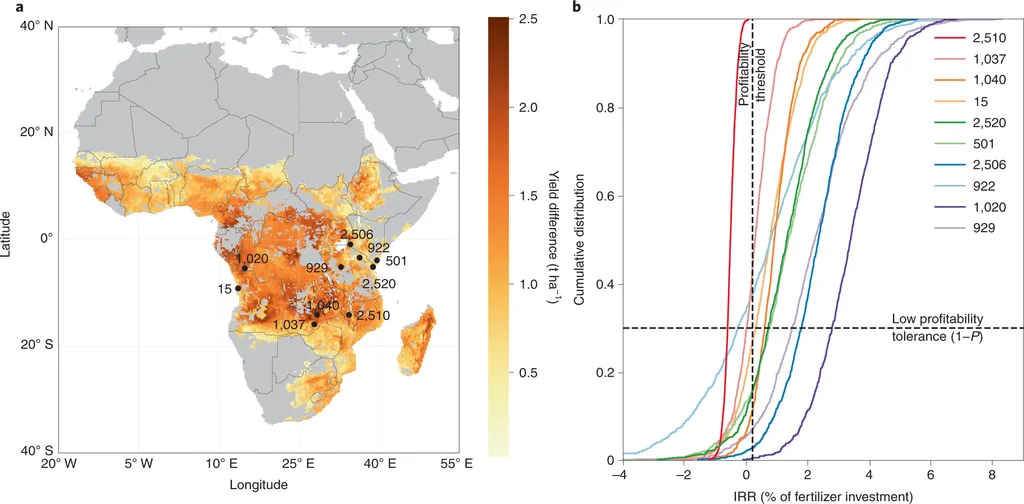In the heart of sub-Saharan Africa, where the rhythm of life is often dictated by the seasons, a new study is stirring conversations among farmers, policymakers, and energy sector stakeholders alike. Published in *Frontiers in Soil Science*—which, translated, means *Frontiers in the Science of Soil*—this research delves into the critical intersection of climate change, agriculture, and food security. At the helm of this investigation is Benedicta Essel Ayamba, a researcher whose work is shedding light on sustainable crop production strategies that could redefine the future of farming in the region.
The study, led by Ayamba, explores climate-smart agriculture (CSA) techniques tailored to the unique challenges faced by smallholder farmers in sub-Saharan Africa. These farmers, who form the backbone of the region’s agricultural sector, are on the front lines of climate change. Erratic rainfall, prolonged droughts, and shifting growing seasons threaten their livelihoods and, by extension, the food security of millions. The research highlights the urgent need for adaptive strategies that not only mitigate the impacts of climate change but also enhance productivity and resilience.
One of the key findings emphasizes the importance of soil health. “Healthy soil is the foundation of sustainable agriculture,” Ayamba notes. “By improving soil fertility and moisture retention, we can help farmers adapt to changing climatic conditions and ensure stable yields.” This focus on soil health is particularly relevant to the energy sector, as sustainable agricultural practices can reduce the carbon footprint of food production. In turn, this can create opportunities for renewable energy integration, such as solar-powered irrigation systems, which are becoming increasingly viable in the region.
The study also underscores the role of policy and investment in driving the adoption of climate-smart practices. Ayamba calls for greater collaboration between governments, non-governmental organizations, and the private sector to support smallholder farmers. “Investment in climate-smart agriculture is an investment in the future,” she states. “It’s about creating resilient food systems that can withstand the shocks of climate change while supporting economic growth.”
For the energy sector, this research opens doors to innovative partnerships. As the demand for sustainable and renewable energy solutions grows, the agricultural sector presents a fertile ground for collaboration. Energy companies can explore opportunities to provide clean energy solutions tailored to the needs of smallholder farmers, thereby contributing to both climate change mitigation and food security.
The implications of this research extend beyond sub-Saharan Africa. As climate change continues to disrupt agricultural systems worldwide, the lessons learned from this study could inspire similar initiatives in other regions. By prioritizing sustainable practices and investing in climate-smart technologies, the global agricultural sector can pave the way for a more resilient and food-secure future.
In the words of Ayamba, “The time to act is now. We have the tools and the knowledge to make a difference. It’s about turning that knowledge into action.” As the world grapples with the challenges of climate change, this research serves as a beacon of hope, guiding the way toward a more sustainable and secure future for all.

